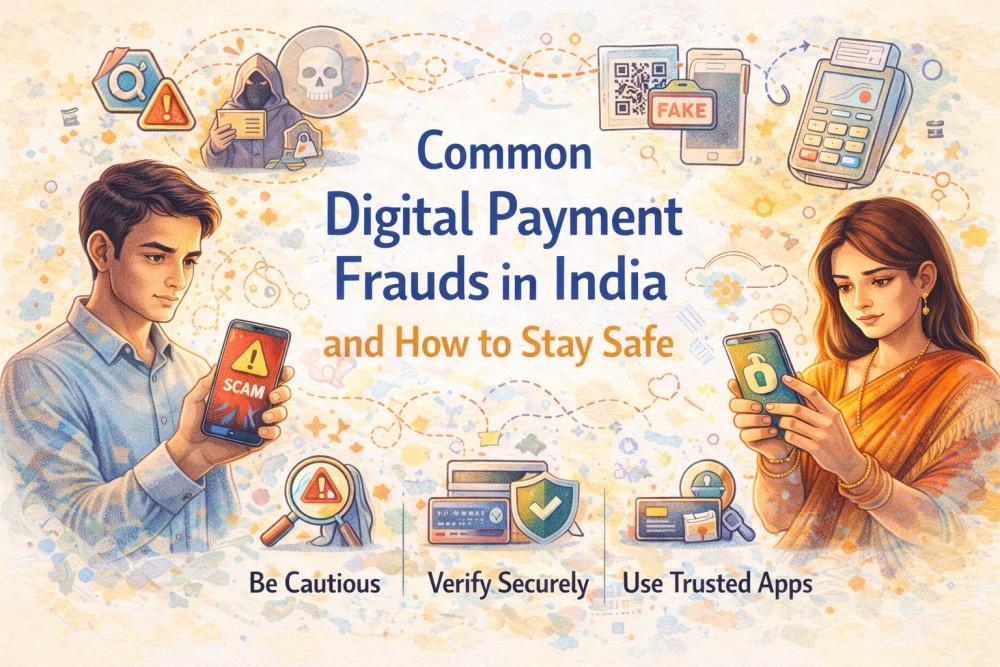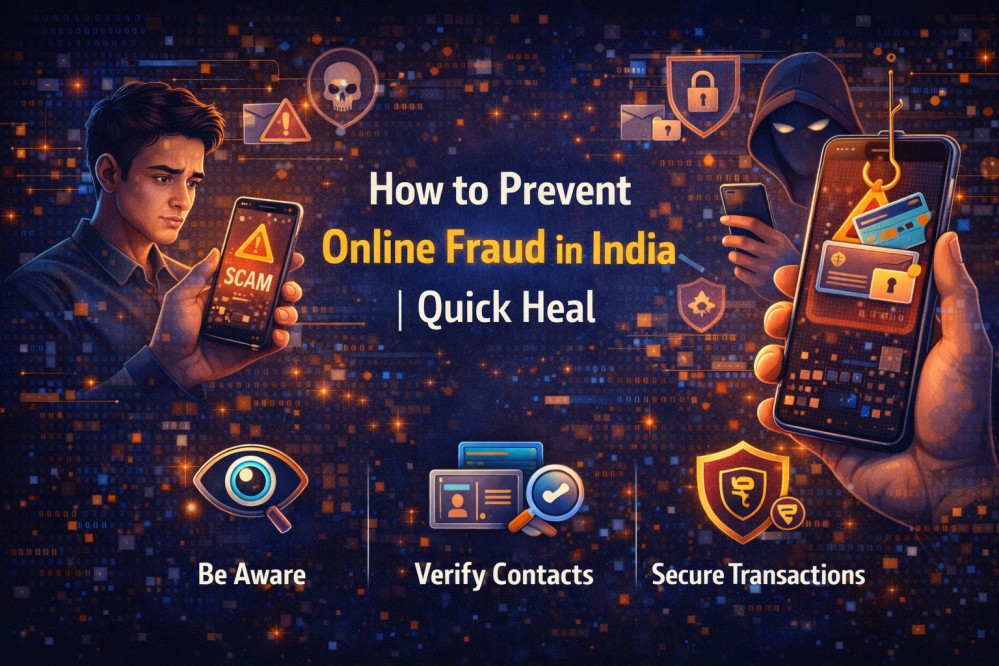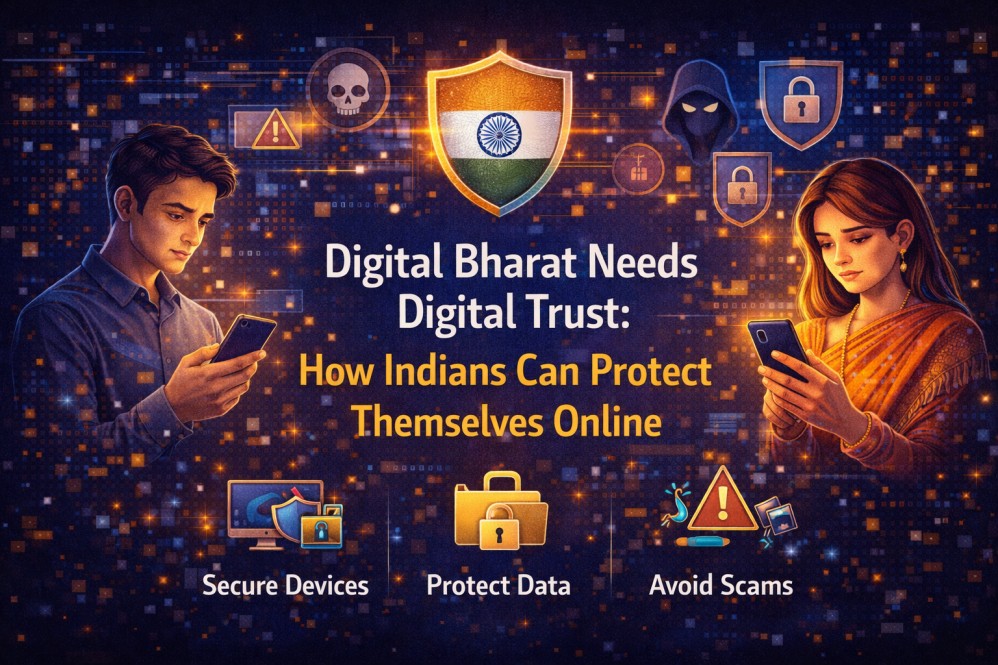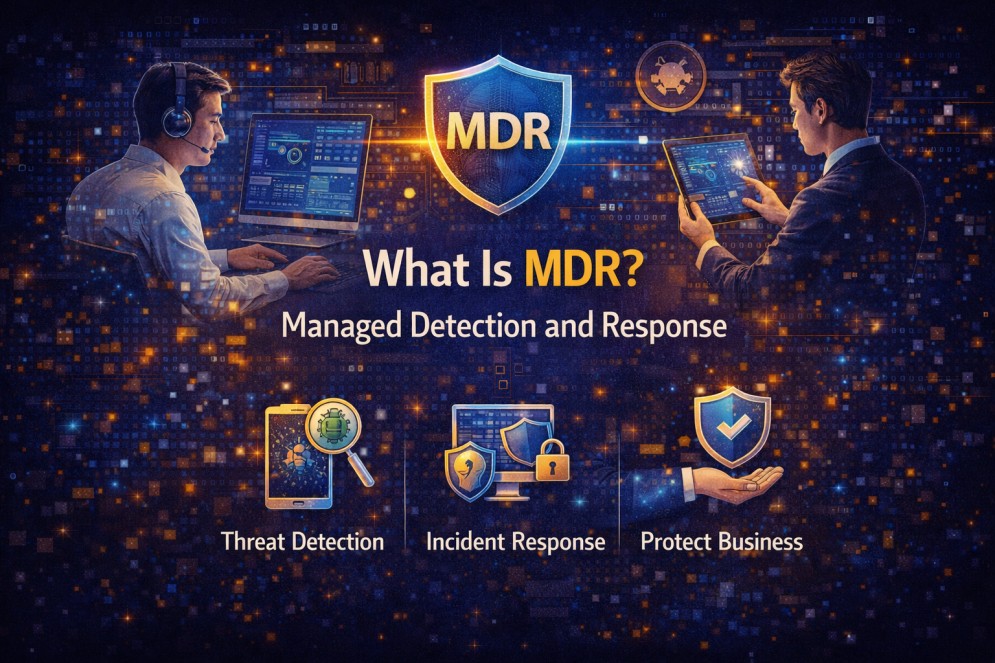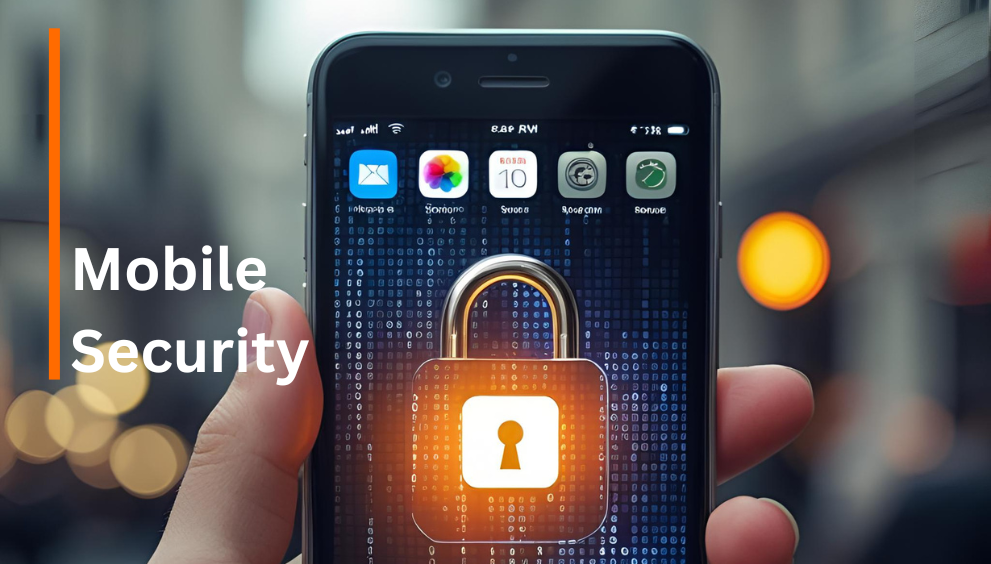
Aug

Mobile Security: Importance, Risks & Best Practices
-
Quick Heal / 7 months
- August 1, 2025
- 0
Your phone is your whole life in the palm of your hand. You do so many things on it. You shop, pay bills, connect with people and store a lot of personal information. It’s impossible to live a day without it. But with so much kept on a single device, the real question is how safe your phone really is.
Now, mobile security is not merely nice to have. It is absolutely essential. Every time you click on a link, install an app or log into Wi-Fi, there’s a chance someone is breaking in. In this article, we will talk about why mobile security matters, the threats you should be aware of and the ways to be secure both through smart practices and good tools.
What is Mobile Security?
Mobile security includes the habits, techniques and tools used to protect smartphones from digital threats. It keeps your data, apps, network and identity secure from being misused. Security is a priority to ensure privacy because smartphones are becoming the target of cyberattacks.
Why Mobile Security Matters
With the sensitive information stored on them, smartphones are a lucrative target for attackers. Everything from personal messages and photos to financial transactions can be at the fingertips of hackers who manage to gain control of your phone. UPI fraud has been a major issue in India. Fake apps or phishing links can be used by hackers to deceive users into sharing confidential information.
Another possible vulnerable area is mobile banking. Just a tiny mistake, say, typing your credentials into a fraudulent app, can lead to massive losses. Many users shop online and store their credit card data, which could be stolen.
Cybercriminals have become smarter. They now primarily go after regular people instead of big corporations. In the face of so much to lose, mobile security must be taken seriously.
Types of Mobile Security
There are various ways to secure your mobile phone. The three main areas of protection include apps, devices and network security.
Antifraud Apps
These are apps designed to detect and prevent fraud in real-time. They cannot stop phishing links, scam messages or fake apps from wreaking havoc in the first place. Many antifraud tools will also monitor apps for unusual behaviour and alert you before sensitive data is exposed. They are particularly helpful in securing banking, UPI and shopping transactions.
Device
Device-level mobile cyber security includes screen locks, biometric access, app permissions, and system-level protections to prevent unauthorized use. It ensures that only trusted users can access your apps and data. Regular software updates and built-in security settings also help protect the device from harmful apps or attempts to break into it.
Network
Network security protects your phone from unsafe Wi-Fi connections, man-in-the-middle attacks, and unknown data transfers. A safe network is the first line of defence. It checks for risky hotspots, prevents data interception and keeps your browsing and online payments private. Network protection is essential when using public Wi-Fi or accessing sensitive information online.
Common Mobile Cyber Threats to Watch Out
Mobile threats are increasing each year. Cybercriminals now target everyday users through apps, messages and public networks. Many users fall into the traps of the different types of cyber attacks unknowingly. Here are some key types you should be aware of:
- Phishing Apps: These fake apps look like real banking, social media, or payment apps. They trick you into entering your login credentials and personal information. Hackers then use this information to access and misuse your accounts.
- Adware: Adware displays constant pop-up ads on your phone without your permission. It slows down your device and can make normal usage difficult. Some adware also tracks your browsing and app activity to earn money through ads.
- Fake Banking or UPI Apps: These apps copy the look and design of genuine banking or UPI apps. Users enter sensitive information, thinking the app is real. The stolen data is then used by hackers to take full control of your bank account.
- Public Wi-Fi Snooping: Free public Wi-Fi networks are often not secure or encrypted. Hackers can spy on the data you send or receive while using them. This includes sensitive details like passwords, banking info and personal messages.
- Spyware: Spyware runs secretly in the background of your phone. It reads your messages, records your calls and tracks your location. All this information is sent to cybercriminals without your knowledge.
- SIM Swap: In this scam, fraudsters get a new SIM card issued with your number. They receive all your OTPs and calls, allowing them to access your accounts. It is often used to take over banking or payment apps.
- Cyberterrorism: Cyberterrorism uses digital tools like phones to spread harmful content or threats. It may involve spying, hacking or targeting key services or systems. Although not common, it can cause serious national and international harm.
How Mobile Security Protects You
Quick Heal Mobile Security is one such mobile security solution that offers real-world protection for your device. It is designed to stop threats before they reach your phone, giving users peace of mind. Whether it is a suspicious app, unsafe Wi-Fi or a spam call, the app helps prevent harm through its smart features.
Let us look at some of the core functions that keep your mobile safe.
Real-time Antivirus
This feature scans every app, image and file the moment it is installed or downloaded. It alerts you immediately if something harmful is detected. This makes it one of the top choices for users looking for a reliable mobile antivirus. It works quietly in the background without affecting phone speed, ensuring round-the-clock protection. Whether you are downloading a photo or installing a new app, it keeps your device safe from hidden threats.
Theft Protection
Losing a phone can be stressful, but with theft protection features, you can lock the device remotely, track its location or receive an alert if the SIM card is changed. These tools add an extra layer of security and help you recover your phone quickly. You can even erase your personal data from a distance to prevent it from falling into the wrong hands. It gives users peace of mind, especially when carrying sensitive information on their phones.
Wi-Fi Security Scan
Unsafe networks are a major source of cyberattacks. The Wi-Fi scan checks the safety of networks you connect to and blocks any man-in-the-middle attacks or threats from public hotspots. It notifies you when a Wi-Fi connection is risky and advises you to disconnect. This is especially useful when using Wi-Fi in hotels, airports or cafes where hackers may try to steal your data.
Call and SMS Blocker
Scam calls and spam messages are common tricks used by cybercriminals. This feature blocks unknown or fraudulent calls and filters phishing SMS, reducing the risk of clicking on harmful links. It also helps with phishing detection. You can create your own block list, report spam, and avoid distractions from telemarketers and fraudsters. This keeps your communication clean and secure.
Best Practices to Keep Your Smartphone Secure
Several people are looking for the right answer to the common concern of how to protect phone from virus and other threats. Besides using security apps, good habits can make a big difference. Here are some simple and useful ways to stay safe every day.
- Avoid Third-party Apps: Only download apps from the official Play Store to reduce the risk of malware. Third-party apps may look safe, but can secretly steal your data.
- Use App Lock for Sensitive Apps: Add an extra layer of security by locking apps that contain personal or financial information. This helps prevent others from opening them without your permission.
- Regular OS Updates: Always keep your phone’s operating system updated to fix bugs and improve security. Updates also protect your device from the latest threats.
- Secure Wi-Fi Only: Connect to trusted and password-protected Wi-Fi networks whenever possible. Public or open networks can allow hackers to steal your data.
- Do Not Auto-save Passwords: Wondering how to prevent data leakage in mobile? Avoid saving passwords directly in browsers or apps, as they can be accessed easily. Instead, use a password manager for safer storage.
- Check App Permissions: Review the permissions your apps ask for and deny anything unnecessary. This limits what apps can see or control on your phone.
- Use 2FA for Banking: Turn on two-factor authentication for banking apps to add another step during login. It helps protect your account even if your password is stolen.
- Enable Screen Lock: Always set up a PIN, fingerprint, or pattern lock on your phone. This stops anyone from accessing your phone without your consent.
- Install Trusted Antivirus: Use a trusted antivirus app to protect against viruses, fake apps and scam links. Just choose something appropriate to provide adequate security for Android or the specific OS of your device.
- Backup Data: Back up your important files, contacts and photos regularly to a cloud or external device. This way, you do not lose data if your phone is lost or damaged.
Mobile Security Products
When it comes to choosing the right tool, users need something simple yet strong. Quick Heal offers a range of trusted options to suit different needs. Each product is lightweight, easy to use, and offers complete protection. With certifications from global labs and a huge user base, you can trust these solutions. Anyone asking about the best antivirus for Android smartphones should take a look at these products:
Total Security for Android
It delivers powerful protection against viruses, malware, and unsafe apps. It scans all apps, files, and folders for threats and ensures your Wi-Fi network is safe. The SafePe feature secures digital payments and banking, while App-Lock adds a PIN layer to protect private apps. Parents can monitor YouTube usage, block inappropriate content, and set screen time limits with Smart Parenting tools. This all-in-one solution keeps your phone and family safe, both online and offline.
Quick Heal Mobile Security
Quick Heal mobile security software offers smart protection to ensure your smartphone runs smoothly and safely. With multiple scan options, it lets you perform quick scans for fast threat detection or deep scans for thorough security checks across apps, files, and folders. The Secure Wi-Fi Network feature checks if your connection is safe, protecting you from online risks.
App-Lock adds a strong PIN layer to secure personal apps like WhatsApp, Instagram, and Gallery. App Advisor acts as your personal security assistant, scanning apps before and after downloads to block potential threats in real time.
Quick Heal Antifraud
Quick Heal Antifraud protects you from scams, fraud calls, fake apps, and data leaks. It alerts you to suspicious activity like call forwarding, screen sharing, or mic access. With features like risk profiling, fraud detection, secure payments, and dark web monitoring, it keeps your financial and personal data safe while also protecting your loved ones from banking fraud. This mobile security solution is a smart shield against growing digital threats.
Download and Stay Protected Today
Every smartphone deserves to be safe. Do not wait for something to go wrong. Take the smart step now and install Quick Heal Mobile Security. Protect your personal and financial data before it is too late.
Get Quick Heal Mobile Security today and browse worry-free.
Frequently Asked Questions
-
Why is smartphone security important?
Smartphones hold valuable and sensitive information such as passwords, personal messages, banking apps and even private photos. Without adequate security, that information can be stolen or misused.
-
What is a mobile security breach in cyber security?
It is when your phone’s data gets accessed or damaged without your permission. It can occur via malicious apps, insecure networks or software bugs.
-
What is cybercrime on mobile phones?
This extends to any unlawful acts done with or against a mobile phone. Some examples are data theft, online scams, identity theft and computer malware.
- Mobile Security

